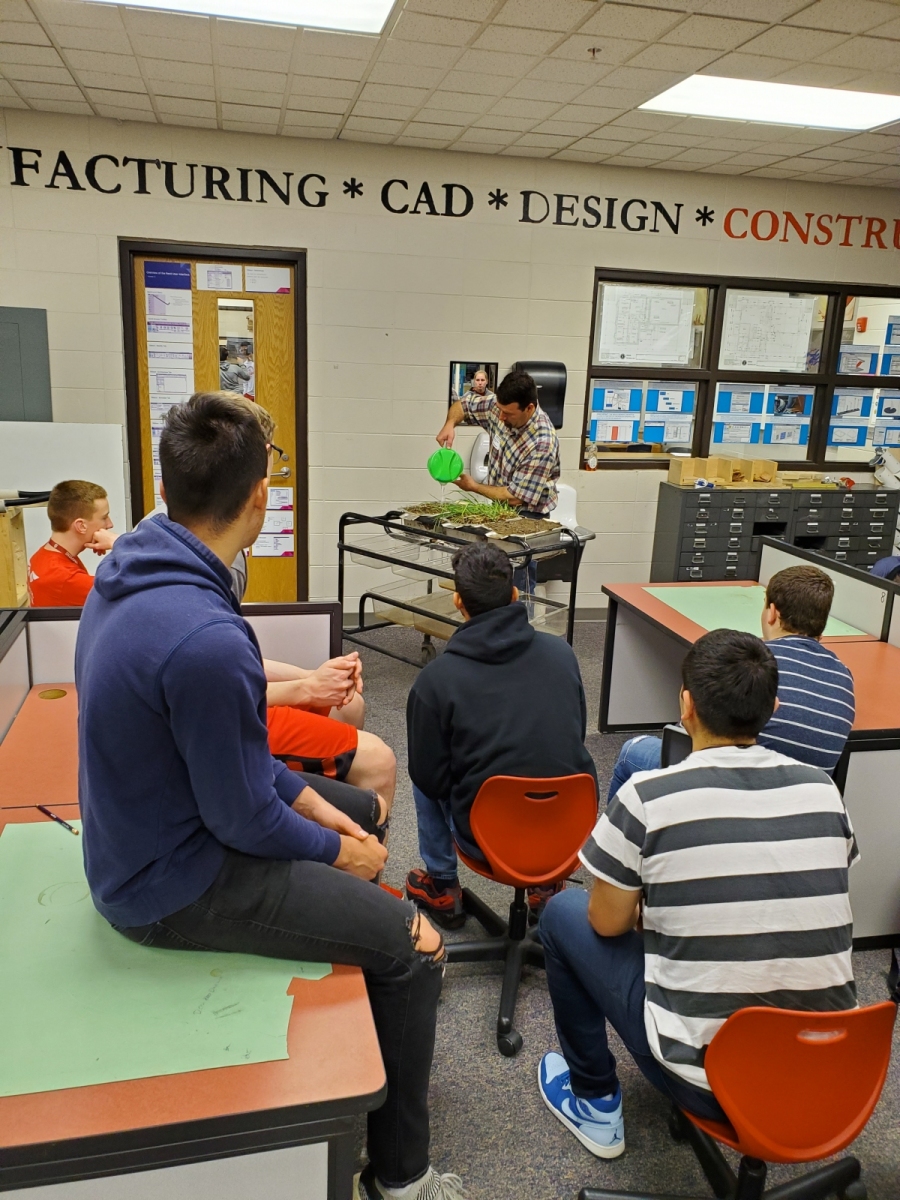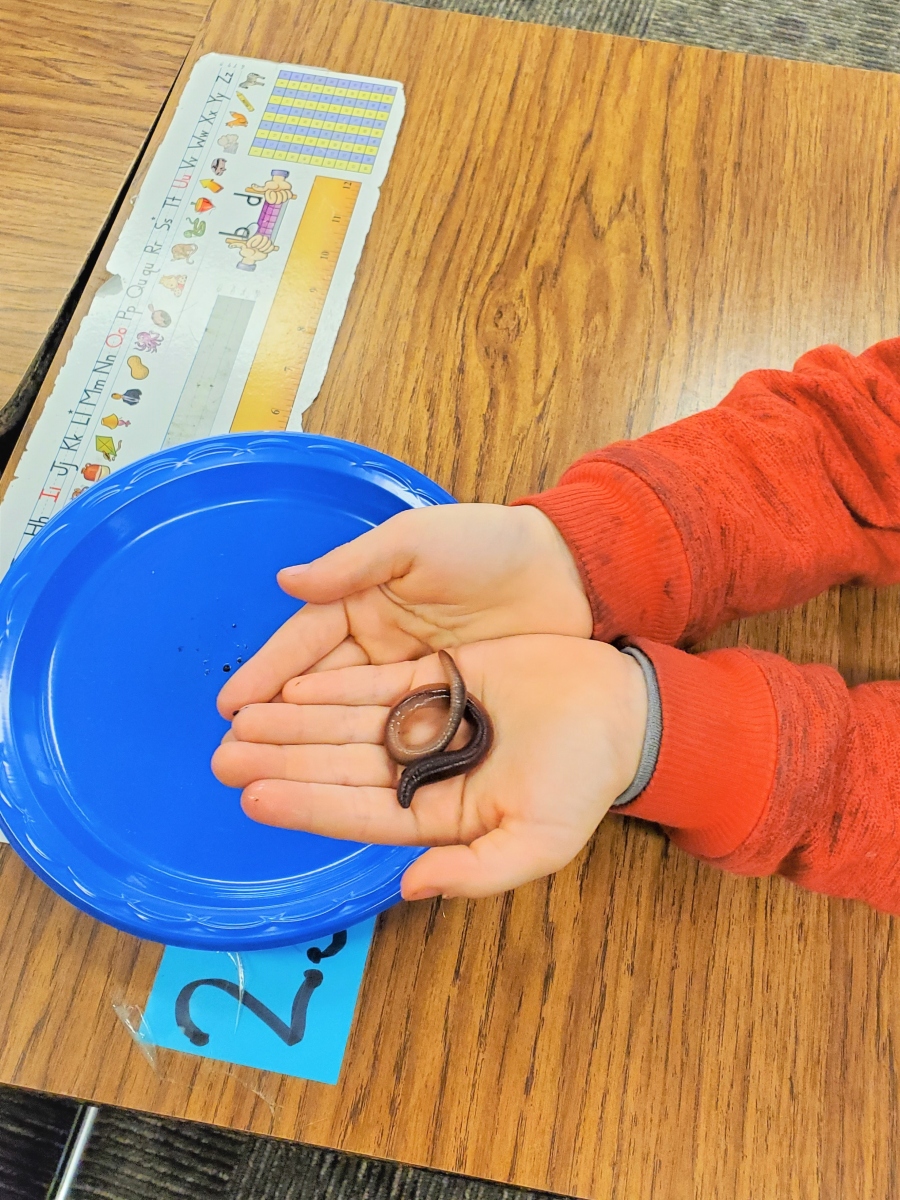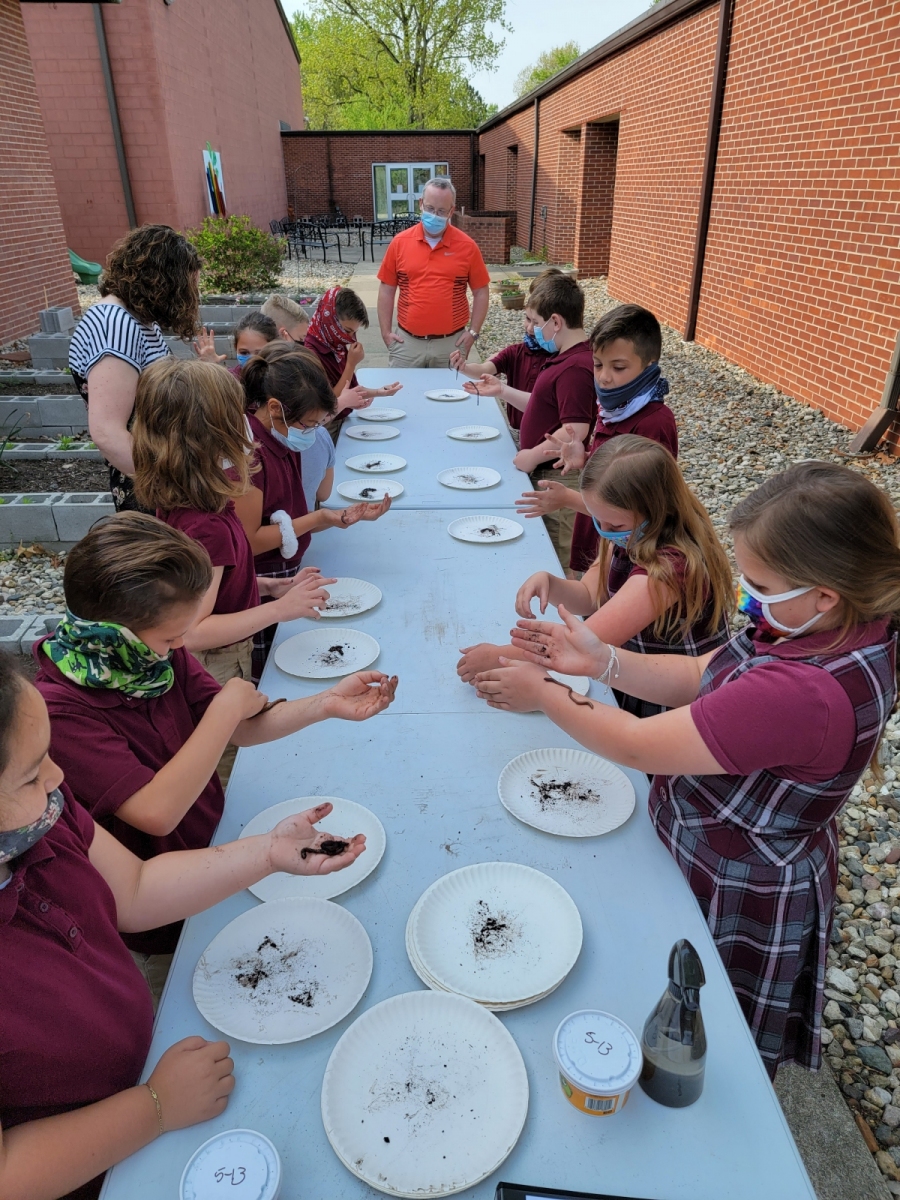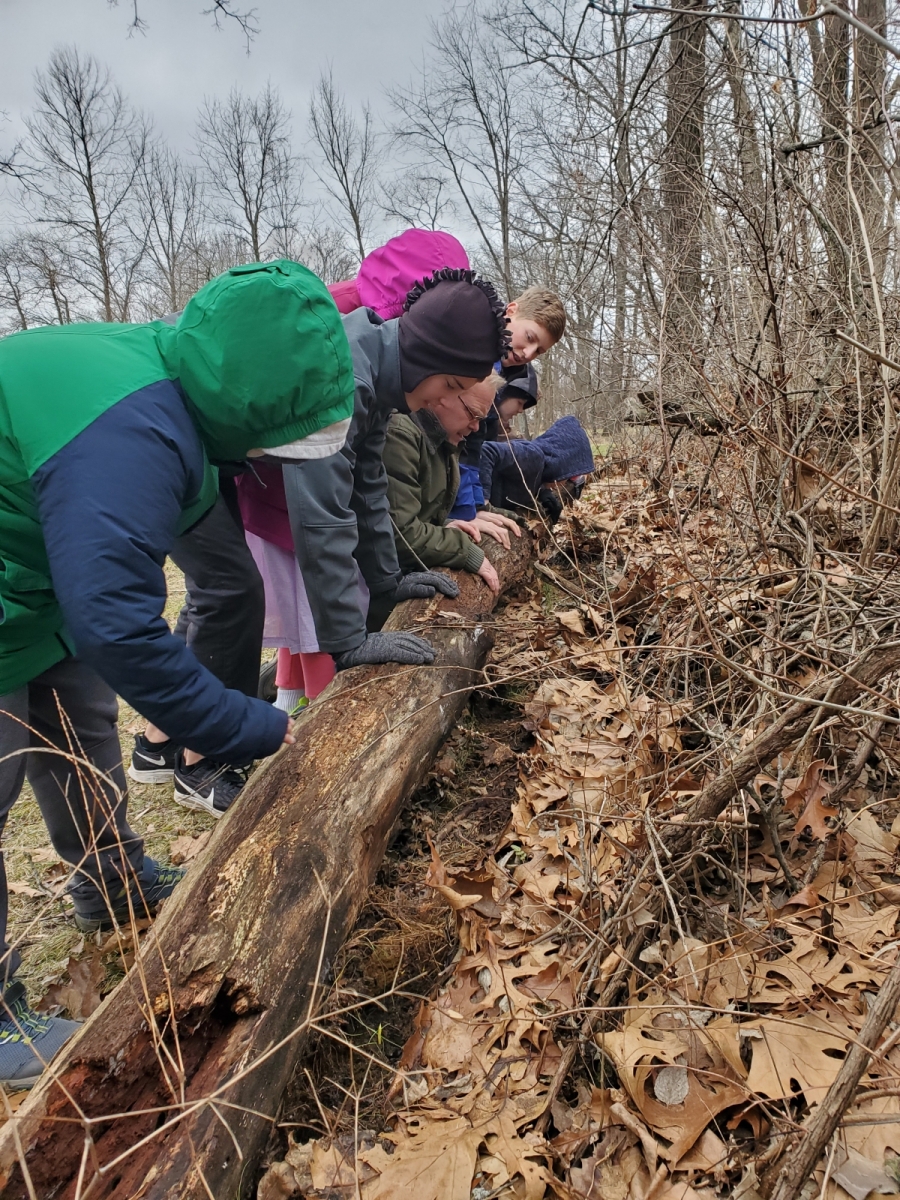
The Elkhart County Soil and Water Conservation District wants to help educators incorporate conservation lessons into their curriculum by providing the support, expertise, and tools necessary to engage students in the natural world that surrounds them every day. Our school programs are free of cost to teachers within the county. Whether you want to have us into your school for a grade-level presentation, borrow our educational “kits”, or just want to brainstorm ideas on how to bring conservation into the classroom, please contact Jenna.
Classroom Programs
The Elkhart County SWCD offers a variety of classroom programs led by SWCD staff. Some of the most popular programs are:
Augmented Reality Sandbox (ARS)
[K-12]
The ARS is adaptable to many programs. Older classrooms may opt to borrow the ARS for a few days and work through curriculum/activities pertaining to watersheds, water movement, erosion, topography, or geography during normal classroom hours without SWCD staff. SWCD Staff will also present using the ARS on the topics of watersheds, water movement, erosion, and topography. You can visit the ARS page for more information.
Infiltration & Runoff
[K-12]
This is an outside activity! We pour water over different land uses to see the differences in infiltration and runoff of water. This program focuses on soil health related to above ground growth (like native plants, farming practices, and yard care).
Native Plants
[K-12]
Students will each make their own native seed start to take home. These starts are filled with native flowers and grasses that students can plant to grow their own natives. We’ll also talk about the importance of native species and what we can do to combat non-native invasive species.
Soil Health & Soil Texture
[6-12]
Time to get muddy! This program combines soil health and soil texture for the ultimate experience. This is great for older students and can be done indoors or outdoors.
Water Quality
[K-12]
How clean is the water? Ask the bugs! Dive into water quality with macro invertebrates. Students sample and identify macro invertebrates in the water and learn what they mean for water quality.
Water Resources
[K-12]
This program is adaptable to your school, grade level, and current in class discussions about water. We’ll talk about where the water at your school comes from, where it goes, and what we can do to better conserve and preserve it. Urban stormwater management, including construction, rain barrels, and rain gardens, is a strong focus.
Worms & Soil Health
[K-4]
SWCD staff joins your classroom for 30-45 minutes to talk about worms and how they help keep the soil healthy. We bring the worms! This is a great lesson for younger students.
Don’t see one that you like? We will work with you to create a natural resource program that will fit into your classroom.
We also encourage you to use Project-Based Learning to incorporate conservation in the classroom. You supply the excitement and structure, then we’ll provide the background information and support. Topics that we can help you develop PBL plans for include (but are definitely not limited to!):
- Stormwater Management
- Conservation Planning (such as woodlots and native restorations)
- Conservation Agriculture Planning
Have another idea? Let us know, we’re excited to help!
Educator Workshops
Workshops are offered for groups of educators (10 minimum) in the following programs:
Project WET – sponsored in Indiana by the Indiana Department of Natural Resources, Division of Fish and Wildlife. Project WET envisions, “a world in which action-oriented education enables every child to understand and value water, ensuring a sustainable future.”
Project WILD/WILD Aquatics – sponsored in Indiana by the Indiana Department of Natural Resources, Division of Fish and Wildlife. Project WILD is “a wildlife-focused conservation education program for K-12 educators and their students and is one of the most widely-used conservation and environmental education programs among educators of students in kindergarten through high school. It is based on the premise that young people and educators have a vital interest in learning about our natural world. A national network of State Wildlife Agency Sponsors ensures that Project WILD is available nationwide and is training educators in the many facets of the program. Emphasizing wildlife because of its intrinsic value, Project WILD addresses the need for human beings to develop as responsible citizens of our planet.”
Project Learning Tree – sponsored in Indiana by the Indiana Department of Natural Resources, Division of Forestry. “PLT teaches students how to think, not what to think about complex environmental issues. Recognized as a leader in environmental education for 40 years, PLT enhances critical thinking, problem solving, and effective decision-making skills. PLT’s professional development is carefully designed to create effective learning experiences. PLT’s award-winning, multi-disciplinary curriculum materials are hands-on and fun, and aligned with state and national education standards. More than half of all PLT activities can be conducted outdoors.”
Hoosier Riverwatch – sponsored by the Indiana Department of Environmental Management. “The task of volunteer monitoring is to produce valid environmental data, which is needed to protect our watersheds and aquatic resources. Volunteer monitoring will also inform and engage the community in effective watershed stewardship. In addition, volunteer monitors build awareness of water quality issues, aquatic resources and pollution prevention.”



